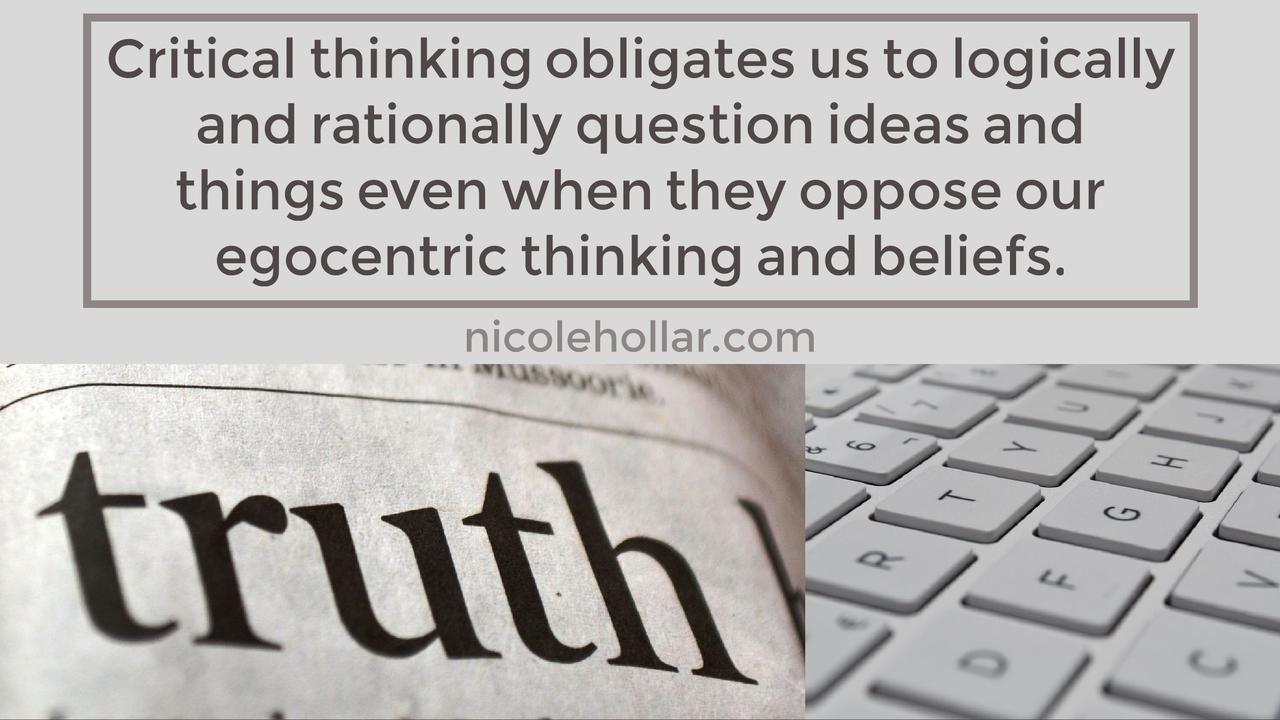Critical Thinking and Disinformation.
Sep 23, 2018
Like many of you I am a participant in social media in its various forms. My blog today is fully inspired by the incredible amount of false content we have access to, and the rapid fire way in which people communicate it without fact-checking. Very often these “shares” are of the political nature, inaccurate dates and events, partial truths or lies, or true events circulated with inaccurate headlines in order to evoke outrage. To give a non-divisive example, I have literally seen memes announcing the death of “The Rock,” Dwayne Johnson at least three times. As we know, they travel in cycles. If you know people who spread untrue or misleading content, please ask them to stop.
I believe it is our duty to read past headlines and see more than the surface content of a photo. We are highly social beings who engage with one another. The integrity of our word is vital. Critical thinking obligates us to ask if something really makes sense even if we want to believe, or not believe its truth. Sure, sometimes we unknowingly share false information even when we tried to vet its accuracy but are you of enough integrity to accept that you have done that when called out?
According to Wikipedia, Critical Thinking is “the objective analysis of facts to form a judgment. The subject is complex, and several different definitions exist, which generally include the rational, skeptical, unbiased analysis, or evaluation of factual evidence. Critical thinking is self-directed, self-disciplined, self-monitored, and self-corrective thinking.” The first documentation of critical thinking was by Plato of the teachings of Socrates. “Socrates set the agenda for the tradition of critical thinking, namely, to reflectively question common beliefs and explanations, carefully distinguishing beliefs that are reasonable and logical from those that—however appealing to our native egocentrism, however much they serve our vested interests, however comfortable or comforting they may be—lack adequate evidence or rational foundation to warrant belief.”
Socrates believed in excellence of thought and understood that people lacked knowledge, however it was their obligation to learn what they did not know. He believed that one must listen to all viewpoints, connect prior knowledge and transform the data in a thoughtful manner.
I believe if we all hold the information we communicate to a higher standard, regardless of our personal beliefs we will be a more informed and connected society, and be able to see past our specific bias. In today’s technology age we have the power to wield truths and fallacies, and the opportunity to figure out which is accurate right at our finger tips.
Get Notes from Nicole Weekly
Nicole will share her inspirational messages, meanderings, motivation, and self-care ideas that she often has while driving or mowing the lawn. Each "Note" is a relatable thought or anecdote from real life and often inspired by personal conversations or with her clients.

